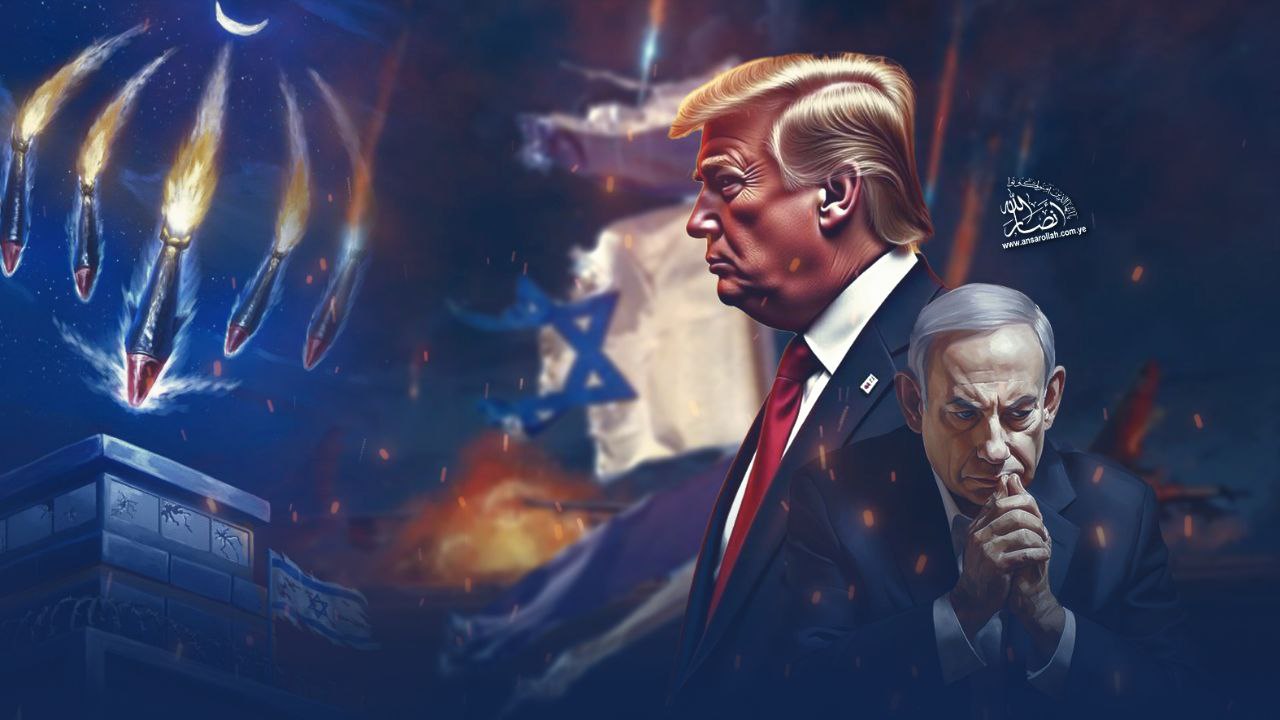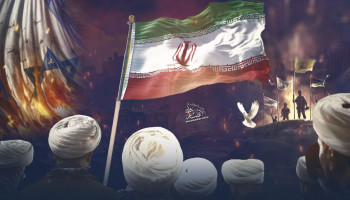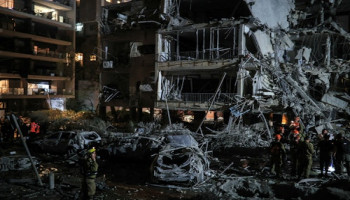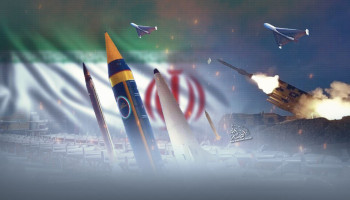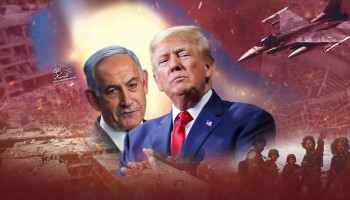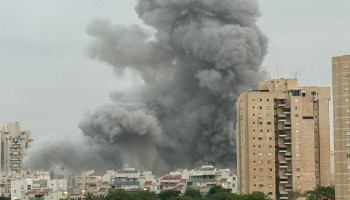Published: 2 Muharram 1447 AH
The Israeli entity is inherently hostile by nature—founded on the logic of military force, sustained by wars, and dependent on conflict for its survival. Rarely does a year pass without Israel engaging in aggression or confrontation. It is a state that cannot exist without war, which serves as the foundation of its existence and its method of asserting dominance in the region. Based on this premise, it continually seeks to preserve its military and technological superiority, driven by a deep awareness that even the slightest weakness could evolve into a serious existential threat.
Despite maintaining its superiority in military, intelligence, and technological domains, the Zionist entity’s repeated entry into military conflicts—especially with Palestinian resistance factions in Gaza or with Hezbollah in southern Lebanon—reveals a significant strategic flaw. This flaw was highlighted repeatedly during the al-Aqsa Flood and, more prominently, during the Israeli aggression on Iran: the clear absence of a defined "exit strategy."
The Zionist entity often launches its military operations with overwhelming force, relying on the elements of surprise and precision. However, it lacks a comprehensive plan for the aftermath of such operations. From the earliest stages of the al-Aqsa Flood, repeated questions arose about "the day after"—a question that became central in the Biden administration's discussions with Netanyahu’s criminal "government": What is the entity's vision for the next day?
In most of the wars it wages, the Zionist enemy's military operations end either at a point of stalemate or under growing political or humanitarian pressure. What follows is typically a phase of mediation—often spearheaded by the United States—to broker a ceasefire or reestablish what is referred to as “mutual deterrence.” This pattern has occurred multiple times in Gaza and Lebanon—and now, more clearly than ever, in the confrontation with Iran.
An exit strategy is a critical part of military and political planning concerned with concluding operations in a manner that secures strategic objectives and prevents a relapse into conflict. In the Zionist entity’s case, this element appears either completely absent or deliberately set aside in favor of short-term calculations.
In most of its military engagements—such as the wars in Gaza (2008, 2012, 2014, 2021)— the Zionist entity initiates extensive aerial bombardments, sometimes followed by limited ground operations, under pretexts such as “weakening rocket capabilities” or “restoring deterrence.” Yet, each time, Zionist leadership fails to articulate a vision for what should follow the cessation of hostilities. This may be due to the entity’s habitual reliance on Washington to secure an acceptable exit. As a result, the outcome is often the same: a fragile ceasefire, a slow return to the pre-conflict status quo, and then another round of confrontation a year or two later.
Such was the case in past wars. But the al-Aqsa Flood marked a deviation, as Netanyahu insisted on waging an all-out war with no retreat until achieving objectives that appeared increasingly unrealistic. While the United States provided unconditional support to the Israeli entity, it simultaneously sought a plan to extract the Israeli entity from the quagmire it had sunk into in Gaza. The ceasefire that took effect in mid-January was an American effort to engineer an exit plan. Yet, Netanyahu reversed his stance, widely seen as a move driven by personal motives and pressure from coalition partners who threatened to collapse his “government.”
The United States has long played a central—albeit undeclared—role in the Israeli entity’s exit strategy. For decades, Washington has not only been a primary supporter of the entity but also the mediator tasked with ending conflicts and restoring—even temporary—stability. In nearly every confrontation, the U.S. intervenes at a critical moment to enforce a ceasefire, block condemnatory resolutions at the UN Security Council, or coordinate with Egypt and Qatar as regional mediators.
What is striking is that the Zionist entity has increasingly incorporated this American role into its operational planning from the outset. It understands that U.S. political and diplomatic backing is largely guaranteed and that any military operation can end safely with American intervention.
However, this dependence does not equate to a genuine “exit strategy.” The American role merely serves to end fighting at an opportune moment—not to build a comprehensive settlement or establish lasting stability. Thus, any exit remains temporary and fragile, while the underlying causes of conflict remain unresolved.
The lack of an exit strategy is not merely a technical or military shortcoming—it is a profound political and strategic dilemma. When the Zionist entity enters a conflict without a clear vision for the aftermath, it exposes itself to a range of risks, foremost among them the danger of recurring attrition. While the Israeli enemy may sustain fewer losses than its adversaries, it also fails to achieve decisive strategic victories. This was evident after the ceasefire with Iran when it was acknowledged in "Israel" that the entity had paid a heavy price without defeating Iran.
In every round of conflict between the Zionist entity and resistance forces, international pressure mounts due to the high number of civilian casualties. This pressure weakens the Zionist entity’s position and opens the door to widespread condemnation. In fact, such pressure was one of the main factors behind the conclusion of earlier military confrontations. The irony today is that the international community has failed to act decisively to halt the bloodshed and grave human rights violations—largely due to unwavering U.S. support for the entity in international forums, including the UN Security Council and the Human Rights Council.
In theory, the Israeli entity, which consistently maintains military superiority and deterrence, has the capability to decisively win wars. Yet in recent decades, it has failed to achieve victory in any conflict or translate battlefield gains into political outcomes. The key reason is that modern wars cannot be won by firepower alone. Without a comprehensive political and security plan accompanying military operations, what they see as "victory" becomes nothing more than a temporary pause in an ongoing struggle.
This reality explains the Israeli enemy’s persistent pursuit of normalization agreements with Arab countries. Recently, promotional images circulated featuring Netanyahu, Trump, and leaders of Arab states that have normalized relations—or are in the process of doing so. Trump’s Middle East envoy, Steve Witkoff, even stated that he expects major announcements soon about new countries joining the Abraham Accords.
Despite these efforts, the Zionist entity has yet to present a successful model for ending conflict. Gaza remains a glaring example. After every war, Hamas rebuilds its capabilities, the population continues to suffer under siege, and the cycle of escalation begins anew.
Today, a new example emerges: Iran. After 12 days of aggression, Iran emerged stronger—more determined, more united, and more committed to its nuclear and missile programs. Washington offered a ladder for de-escalation, opened a door for an exit strategy, and imposed a ceasefire on the Israeli entity. Meanwhile, Netanyahu demanded full-scale participation in the war, but Trump settled for limited strikes on nuclear facilities in Fordow and Isfahan—strikes that were widely deemed failures by Iranian sources as well as U.S. intelligence and media reports.
The absence of a clear exit strategy in the Israeli enemy’s military operations has evolved from a minor tactical oversight into a major vulnerability—one that undermines the very value of its military power. This pattern not only produces recurring security crises but also erodes confidence in the entity’s ability to achieve long-term strategic goals. It hampers efforts at normalization—except in cases where the U.S. applies pressure, as it currently does on Riyadh—and it shatters the image that Zionist leaders strive to project: that of an independent regional power. In reality, without American support, the Israeli entity would be relegated to the past.

